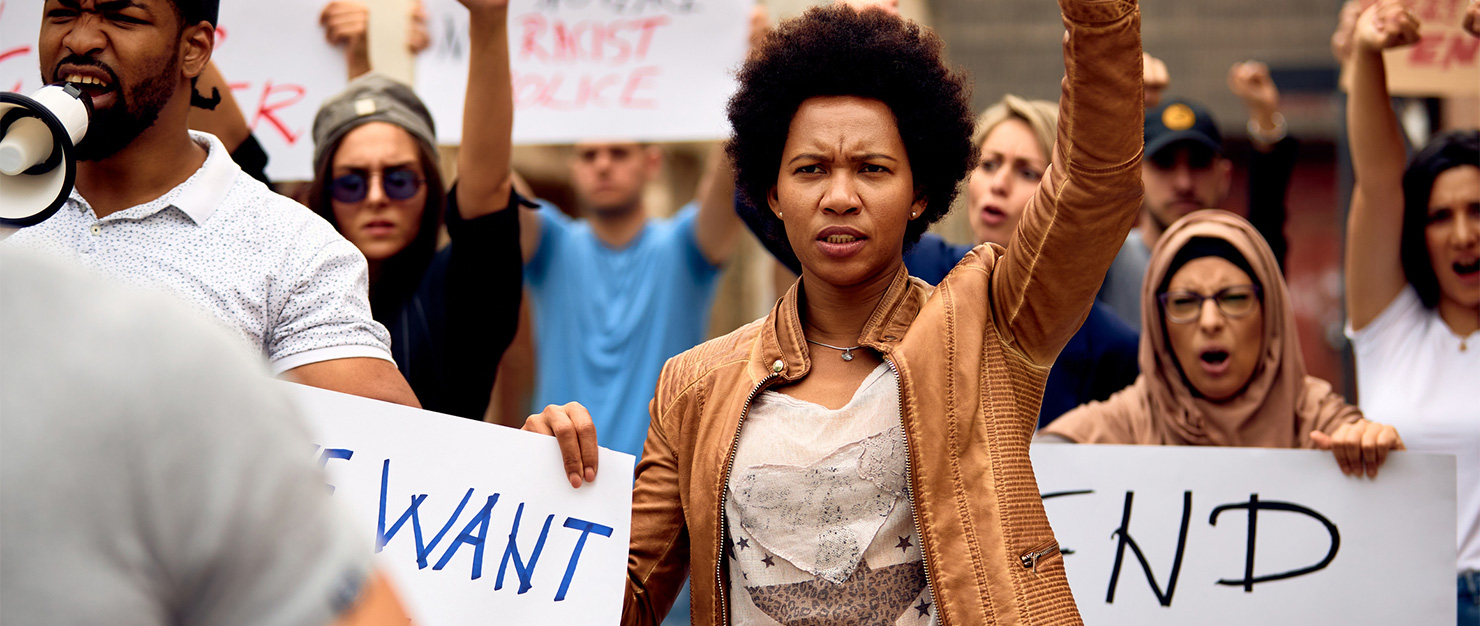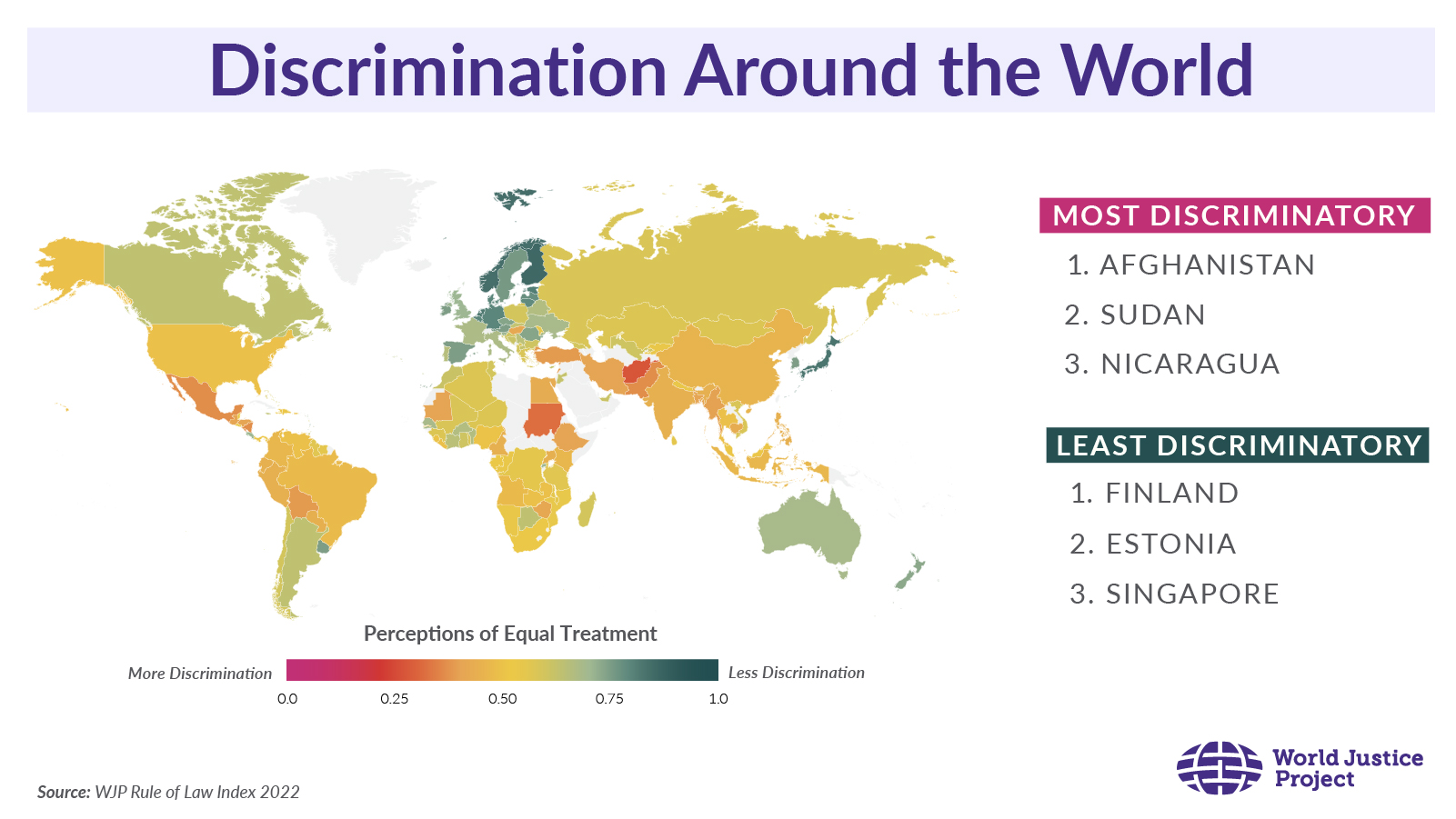

World Justice Project (WJP) Rule of Law Index—the world’s leading, independent source of rule of law data—finds that 70% of countries have seen discrimination worsen between 2021 and 2022. Since 2015, discrimination has increased in three-fourths of countries that WJP studied.
The latest edition of the World Justice Project (WJP) Rule of Law Index—the world’s leading, independent source of rule of law data—finds that 70% of countries have seen discrimination worsen between 2021 and 2022. Since 2015, discrimination has increased in three-fourths of countries that WJP studied.
The WJP Rule of Law Index draws on in-depth surveys of more than 154,000 households and over 3,600 experts and legal practitioners around the world to evaluate people’s experiences and perceptions of the rule of law.
Each year, the Index evaluates 44 rule of law sub-factors including “Equal treatment and absence of discrimination.” Each country’s score draws on questions that consider how people are treated in a variety of settings based on their gender, race and ethnicity, sexual orientation, socio-economic status, and national origin.
The average Index score for equal rights is now 0.57 out of 1. Of the 140 countries and jurisdictions in the 2022 Index, only six countries score above 0.80. That includes top performers Finland (0.84), Estonia (0.82), and Singapore (0.82).
The countries where discrimination is worst are Afghanistan (0.27), Sudan (0.31), and Nicaragua (0.36). Among high-income countries, the two where discrimination is most prevalent are the United States (0.48) and Hungary (0.41).
The United States ranks 103 out of 140 countries on equal treatment overall. Its score has dropped 13% since 2015, despite some improvement last year.
The U.S. performs particularly poorly on discrimination within the justice system. The country currently ranks 106 out of 140 countries on impartial criminal justice and 121 out of 140 on absence of discrimination in civil justice, two other subfactors that the Index evaluates.
On the occasion of the International Day for the Elimination of Racial Discrimination, the United Nations is highlighting the urgency of combatting racism around the world.
In the legal sphere, the world has made important progress, according to Sheikha Al-Misnad, who is both a WJP board member and a member of the UN Committee on the Elimination of Racial Discrimination.
“Civil society, working with international organizations, has helped produce constitutions with equality and nondiscrimination articles,” she said.
But racial discrimination continues to be pervasive, she said, and legal solutions alone cannot eradicate it.
“It exists, unfortunately, in the mindset of people through human history, and needs more effort and time to change.”
As the map below demonstrates, many countries around the world fall in the middle of WJP’s scale when it comes to equal rights and non-discrimination.
To explore more data on equal rights around the world, visit our Rule of Law Index.







